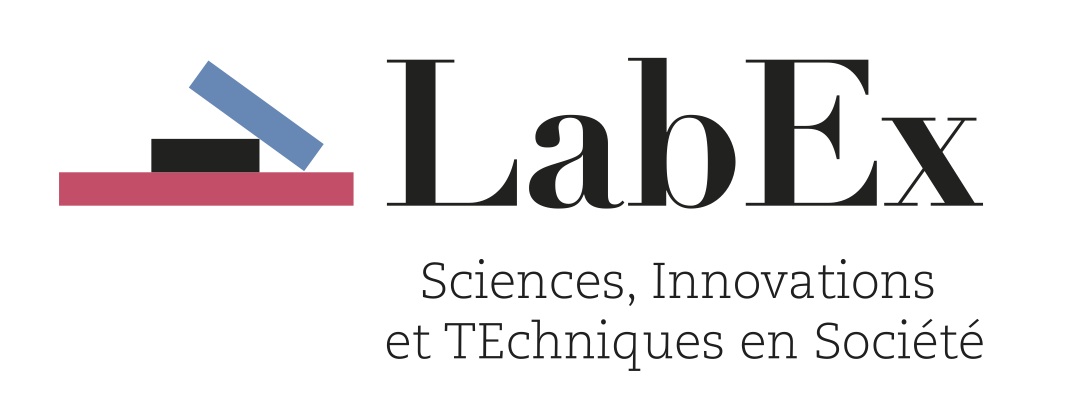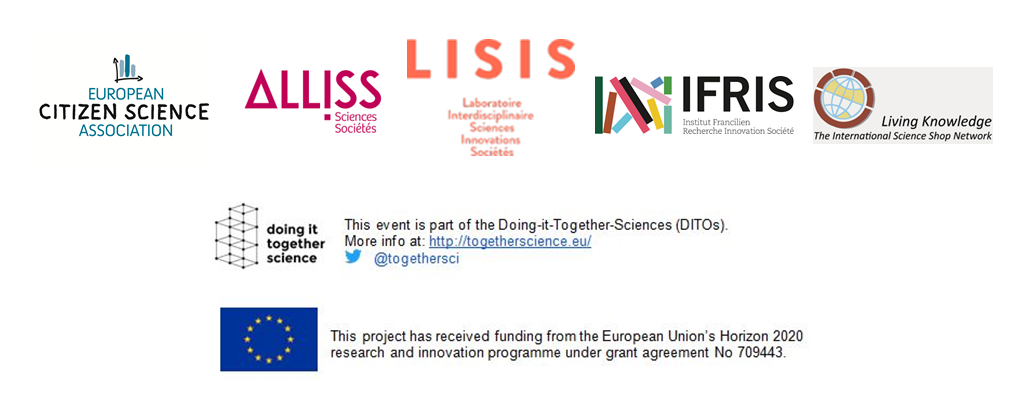Ce jour-là, le jeune chercheur en sociologie qui débute une thèse sur les déchets, quitte le port de la Trinité-sur-Mer sur un voilier de bois, avec trois amis, pour une expédition scientifique de neuf mois à la recherche du « continent » de plastique en Atlantique Nord.
Actualités
« Faux médicaments, vrai business » – Intervention de Mathieu Quet sur France Culture, le 15 décembre dernier
Qu’est-ce au juste qu’un vrai médicament ? Pour répondre à cette question sans doute convient-il d’abord de la renverser en se demandant ce que peut bien être un faux médicament. L’enquête menée en Inde et au Kenya par le sociologue Mathieu Quet permet d’apporter de précieux éléments de réponse qui renvoient notamment au rôle décisif des grandes firmes pharmaceutiques et, plus globalement, de la mondialisation du capitalisme dans la fabrication de la frontière entre vrai et faux médicament. Il sera rejoint en seconde partie par le médecin généraliste et romancier Christian Lehmann.
Seminar With D. Carpenter: Regulating Drugs : State, Science And Banking-10/12
Regulating drugs : State, science and banking
December 10, 2018 / 5-7 pm
Discussion about the new publication of :
Allie S. Freed Professor of Government in the Faculty of Arts and Sciences, and Director of Social Sciences at the Radcliffe Institute for Advanced Study at Harvard University.
Conveners :
Daniel Benamouzig, CSO (CNRS and Sciences Po)
François Dedieu, UMR LISIS, INRA and IFRIS
Discussion:
UMR LISIS, INRA and IFRIS
Etienne Nouguez,
Center for the Sociology of Organizations (CSO), CNRS and Sciences Po
Location at Sciences Po,
Amphithêatre Leroy-Beaulieu
27 rue Saint-Guillaume 75007 Paris
Contact: accueil.cso@sciencespo.fr
CONFERENCE ANNOUNCEMENT Eu-SPRI 2019 Science Technology and Innovation Policies for Sustainable Development Goals. Actors, Instruments and Evaluation Roma, 5-7-June 2019 Hosted by CNR-IRCRES Research Institute for Sustainable Economic Growth
CONFERENCE ANNOUNCEMENT
Eu-SPRI 2019
Science Technology and Innovation Policies for Sustainable Development Goals.
Actors, Instruments and Evaluation
Roma, 5-7-June 2019
Hosted by CNR-IRCRES Research Institute for Sustainable Economic Growth
The Conference builds on the directions proposed by the 2017 Vienna and the 2018 Paris EUSPRI conferences, and focuses on new actors, instruments, practices, and policies for research and innovation to pursuing sustainable development goals using the problem-solving approach.
The Conference wants to deepen the concepts of ‘missions’ and ‘transformative policies’, and how R&I studies can address them, trying to figure out existing or potential linkages between missions and sustainable development goals, and what is the contribution that STI policy studies can provide in this respect.
The Conference should also discuss the problem of measurements related to missions and the existing gap between missions and social challenges, policy objectives, policy instruments, and research projects, including the understanding of issues such as regulations, public funding and public procurement toward reaching specific goals.
The Conference will be organized around seven key themes.
- R&I policies toward mission-oriented sustainable research: rethinking policy design, implementation and evaluation.
- New governance of STI policies: actors, networks and instruments
- Social innovation: enabling factors and existing practices for sustainable social needs
- RRI and the responsiveness of science and technology developments, institutions and policies
- Disruptive emerging technologies, digital platforms and associated business model innovations and the rise of new innovation ecosystems
- Research infrastructure for STI studies: open data, big data, and new research avenues
- Globalization and the geography of knowledge and innovation
Call for presentations, posters and special sessions
Only one call will be made for both individual proposals (abstracts) collective answers (sessions) and posters. Abstracts should be extensive abstracts (up to 3000 words) indicating if the proponent(s) submit an oral presentation or a poster presentation. Sessions should present the topic addressed and the relevance for the Conference.
The members of the Scientific Committee will be mobilized for the abstract peer review. Papers will be accepted for oral presentation on the base of the results of peer review; the organizers retain the right to assign a paper for a poster even if the authors submitted for oral presentation.
Poster sessions will be given equal time that usual sessions because we consider them as important as oral presentations. The call also foresees proposals for specific sessions or special tracks beyond the key themes, which address the topic under the general Conference theme.
CNR, the organizer of the conference, is dedicated to open access. All colleagues that submit an abstract at the same time engage to make their abstract and presentations accessible on the website of the conference.
Important dates:
– Pre-announcement of the Call: December 2018
– Opening of Submissions: January 10, 2019
– Closing of Submissions: February 15, 2019
– Announcement of selected papers and posters: March 30, 2019
– Registration open: April the 1st, 2019
Local organizing committee:
Emanuela Reale, Giovanni Cerulli, Serena Fabrizio, Lucio Morettini, Bianca Potì, Antonio Zinilli.
Contact: emanuela.reale@ircres.cnr.it
Scientific committee: to be determined.
Secretariat: Marco De Biase, m.debiase@ircres.cnr.it
Website: https://www.euspri2019.it/
Venue
CNR Headquarter for the morning of Wednesday the 5th and Centro Congresso Frentani, which are very close to Termini Station (the main train station of Roma).
Conference website announcement: http://www.ircres.cnr.it/index.php/it/
[Invitation Séminaire Européen] Empowering civil society through participatory investigation? – 1 & 2 février 2019
Empowering civil society through participatory investigation ?
1-2 February 2019
LISIS, Université Paris Est Marne-la-Vallée (RER Noisy-Champs), France
This 2-day workshop is dedicated to exploring new types of interactions between science and society, which we call participatory investigation, and howsuch interactions can contribute to the empowerment of civil society. We want to discuss such interactions from the perspective of civil society organisations (NGOs), a point of view that has so far been largely neglected.
The workshop is organised in collaboration by European Citizen Science Association (ECSA) within the H2020 project Doing it Together Science (DITOs), Pour une alliance sciences en société (ALLISS), Institut francilien recherche, innovation, société (IFRIS), Laboratoire Interdisciplinaire Sciences Innovations Sociétés (LISIS) and the Living Knowledge Network (LKN).
There is a preliminary agenda here.
If you would like to participate, please register by Sunday 9th December 2018 (see section « How to take part »).
Plus d’infos et inscriptions : https://ecsa.citizen-science.net/events/ecsa-events/empowering-civil-society-through-participatory-investigation
« Le prix exorbitant de certains traitements menace l’universalité de notre modèle de santé » – Article reprenant les travaux de Catherine Bourgain et Pierre-André Juven
Le prix exorbitant de certains traitements menace l’universalité de notre modèle de santé
Pour la deuxième année consécutive, Basta ! a établi un classement des médicaments les plus remboursés par la sécurité sociale, en 2017. Un constat se confirme : les médicaments dits innovants, qui visent principalement le cancer, coûtent de plus en plus cher à notre système de santé. De nombreuses institutions s’en alarment. A cause des traitements trop onéreux, les médecins devront-ils, demain, choisir d’allouer certains médicaments à une partie seulement des patients ?
Lire la suite :
[Soutenance] Habilitation à diriger les recherches de François Dedieu – Jeudi 6 décembre (13h30-17h)
Cher(e)s collègues et ami(e)s,
Je suis heureux de vous annoncer la soutenance de mon habilitation à diriger des recherches en sociologie.
Elle aura lieu le jeudi 6 décembre de 13h30 à 17h à l’Ecole Nationale des Ponts et chaussées : 6 et 8 avenue Blaise Pascal , Cité Descartes, Marne La Vallée, en salle V 303.
Le mémoire se compose de 2 volumes :
Tome I. Mémoire de synthèse. Enquêter sur l’action collective organisée.
Tome II. Mémoire original. Le consensus par l’ignorance : l’organisation du déni au sein de la gestion publique des pesticides.
Le jury est composé de :
Suzanne Berger, Raphael Dorman-Helen Starbuck Professor of Political Science, Massachusetts Institute of Technology. Examinatrice.
Mathilde Bourrier, Professeure ordinaire à l’Université de Genève. Rapporteure
Daniel Carpenter, Allie S. Freed Professor of government, Faculty of Arts and Sciences, Harvard University. Rapporteur
Pierre Benoit Joly, Directeur de recherche à l’INRA. Examinateur
Pascale Laborier, Professeure de Sciences Politiques à l’université Paris Nanterre. Rapporteure
Jean Claude Thoenig, Directeur de recherche émérite au CNRS. Garant
La soutenance sera suivie d’un pot auquel vous êtes chaleureusement conviés. Pour pouvoir l’organiser, merci de me confirmer votre présence : francois.dedieu@inra.fr
Au plaisir de vous retrouver à cette occasion,
Amicalement,
[Publication] Fabriquer des actes d’Etat – Une ethnographie du travail bureaucratique de Jean-Marc Weller
Call For Proposals For Early Career Research Training Schools (ECS)
Call for Proposals for Early Career Research Training Schools (ECS)
Opened: 29 October 2018
The Eu-SPRI member organisators are invited to submit proposals for Early Career Research Training Schools (ECS)
The Eu-SPRI Forum aims to support the intellectual and career development of early career SPRI researchers (doctoral candidates; Postdocs), most notably through doctoral programmes, conferences, summer schools and mobility between the partner groups.
Our field of research and innovation policy studies is diverse and has homes in different disciplinary areas. Young Eu-SPRI researchers need dedicated events to acquire and exchange knowledge in two directions:
• Methods-based schools for acquiring new capabilities
• Topic-based schools.
ECS will be hosted by one or more Eu-SPRI member organisations and will be offered by senior scholars in the field. The Eu-SPRI Forum supports one summer and one winter school per year with some 25 students each. The maximum support for a school to 20.000 euros (for organisation and all actual incurred costs for participants once present, no travel costs).
This call asks for applications for ECS to be organised by December 2019 at the latest. Date of the event should be coordinated with the Executive Committee of Eu-SPRI.
Please note that an ECS would complement the existing EU-SPRI series of five training schools that is being piloted 2017 – 2019, see http://www.euspri-forum.eu/key_missions/next_generations/ for more detail.
Submission deadline: 10th December 2018
Proposals should be submitted by e-mail to Eu-SPRI Forum secretariat:mailto:deborah.cox@manchester.ac.uk. The Eu-SPRI Forum Executive Committee will decide the selection of training schools by mid January 2019
L’opinion publique existe-t-elle sur Internet ? – Intervention de Baptiste Kotras sur France Culture
On le sait depuis longtemps : l’opinion publique n’existe pas. Mais on le sait depuis aussi longtemps : tout se passe comme si de fait elle existait. Dit autrement : l’opinion publique est un artefact mais un artefact qui n’en produit pas moins des effets bien réels. Dès lors les chercheurs les plus sérieux savent, depuis longtemps donc, que l’important consiste à saisir les modes de fabrication de ce qu’on appelle l’opinion publique. Or il se trouve que ces modes évoluent, et qu’ils n’ont pas attendu les sondages d’opinion pour exister mais surtout qu’ils n’en sont pas non plus restés au stade des sondages d’opinion. Les quinze dernières années ont vu, à la faveur de la mutation numérique, des transformations aussi rapides que profondes des manières de fabriquer l’opinion publique – et surtout largement demeurées dans l’ombre, sauf pour les professionnels qui ont mis au point ces techniques et les ont transformées en produits et services pour les marques commerciales et politiques. Sauf également pour les rares chercheurs qui s’y sont penchés, parmi lesquels Baptiste Kotras qui vient de publier La Voix du web et qui est ce samedi l’invité de La Suite dans les Idées. Il sera rejoint en seconde partie d’émission par le journaliste du Monde Samuel Laurent, responsable de la rubrique Décodeurs.


